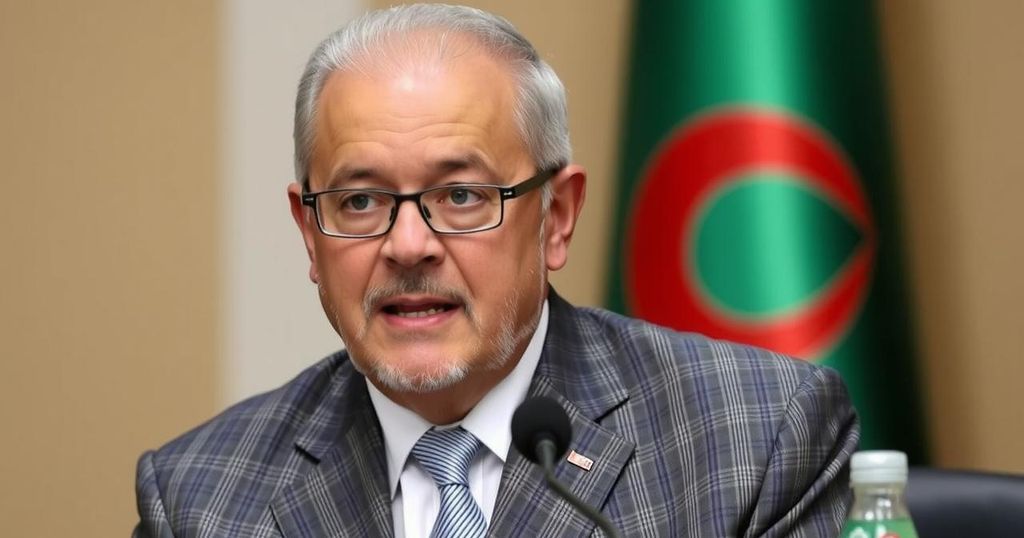Takala Rejects Morocco Meeting, Urges Protest to Foreign Ministry

Mohamed Takala, the rival Head of the HCS, rejected a Morocco meeting with HoR members, arguing lack of representation. He urged Libya’s Foreign Ministry to protest this meeting to Morocco. The Bouznika meeting’s outcome diverged from UN-led initiatives to unify Libya’s political factions toward elections.
Mohamed Takala, serving as the rival Head of the High Council of State (HCS) in Libya, has publicly rejected the recent meeting held in Morocco that included members of both the HCS and the House of Representatives (HoR). Takala contended that the individuals participating did not have the legitimate authority to represent the HCS. He has urged Libya’s Foreign Ministry to formally communicate with the Moroccan authorities to prevent any future meetings that are not sanctioned by the elected leadership of the HCS.
During the meeting in Bouznika, representatives from the HoR and the HCS, including Khalid Al-Mishri, who is also a rival head, reached a consensus to establish a unified government and to create committees aimed at addressing contentious issues within the security, financial, and economic spheres. Takala’s rejection emphasizes the ongoing internal division and alleged political manipulation in Libya’s current situation.
This recent meeting notably diverges from the objectives set by the United Nations mission, which aims to rejuvenate Libya’s political process and encourage all political factions to engage in a collaborative effort toward organizing elections. This tension surrounding representation and legitimacy highlights the fraught landscape of Libyan politics as various factions seek to assert their influence amidst existing divides.
The political landscape of Libya has been marked by a complex power struggle among various factions, particularly between the High Council of State and the House of Representatives. The UN has been attempting to mediate this contention by promoting political dialogue and cooperation among divergent groups. However, internal divisions continue to impede progress, with rival leaders like Mohamed Takala and Khalid Al-Mishri representing competing interests within the HCS. The recent meeting held in Bouznika was intended to foster collaboration but has instead showcased the fractures present within Libya’s political framework.
In summary, Mohamed Takala’s rejection of the Bouznika meeting underscores the ongoing divisions within Libya’s political arena. He insists on the necessity for formal channels of communication between the HCS and foreign entities, emphasizing the importance of unity and legitimacy. As factions continue to vie for authority, the path to a cohesive political solution remains fraught, challenging the UN’s efforts to facilitate a return to stability and elections in Libya.
Original Source: libyaobserver.ly








